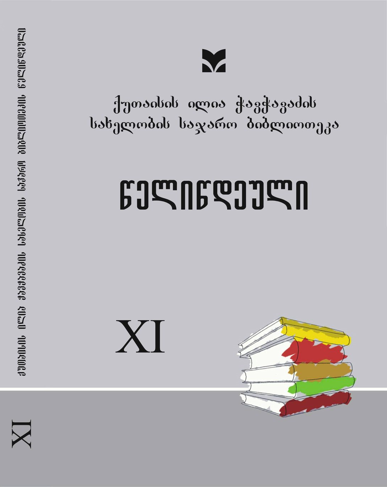საერთო დიალექტური ლექსიკისათვის ქართლურსა და მეგრულში
DOI:
https://doi.org/10.48614/yk.11.2019.33-43საკვანძო სიტყვები:
დიალექტი, მეგრული დიალექტი, ქართლის დიალექტი, დიალექტური ლექსიკა, ქართული ენაანოტაცია
In no dialectal vocabulary in terms of origin can be conventionally divided into two groups: 1. word forms that are common in one or more adjacent kilos, 2. word forms that have historically belonged to a common lexical fund but have narrowed over time, lost in the literary language and much in kilos, but have been preserved in one or more kilograms, and consequently, they are now regarded as dialectal word forms.
The existence of shared vocabulary in neighboring dialects is natural, which is due to territorial proximity. In addition, there are facts when the same dialectal word is found in distant, non-adjacent kilograms. Relevant patterns are not uncommon in the Kartvelian language space.
The study revealed interesting results. In the Kartli dialect, there are a large number of lexical items that are also characteristic of the Megrelian dialect. Here we note: some of the dialect words recorded in Kartli, except Megrelian, are used in other parts of the Georgian language (Imereti, Gurian, Adjara, Kakhetian, Tushuri ...).
The presented article analyzes the common dialect material in Kartli and Megrelian. For example,bandal, boy/girl, burdgha, lia, mandalion, adjustment, muchuchi, sogo, kanchavs, shepletili, shurshura, chvarti, tsutska, chichdeba, booth ...
Common semantic dialectisms are also confirmed in the analytical dialects. For example, „Krukh“ „Aged potatoes, corn, beans“... 2. Land „The main color of the fabric, wallpaper“; 3. The boiler is watered „when the vodka is distilled, the sight will come out in the pipe“; 4. To „take everything out of the house, to appropriate it“...
The existence of a common dialectal vocabulary in Kartli and Megrelian (as well as in other dialects) undoubtedly indicates the fact that these angular expressions are subsystems of one common language, the Georgian (Kartvelian) language system and not independent systems. Kartli and Megrelian are more or less different from the modern written language: the Kartli dialect is closest to the Georgian written language, unlike Megrelian, which shows more peculiarities in this respect, which is generally the result of centuries of divergent and convergent processes.




